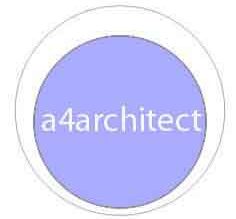Hijacked buildings cost Joburg R8bn
NEWS/CRIME-COURTS /
31 March 2014 at 14:30pm
By: ANNA COX
Johannesburg – The City of Joburg is losing about R8 billion a year in income from illegally occupied buildings and houses.
In some areas of the city, mainly La Rochelle and Rosettenville, about 50 percent of the houses have been “hijacked”.
Testifying in a case against two building hijackers – who were convicted in the Johannesburg Magistrate’s Court earlier this month – Victoria Ramala, City of Joburg assistant director of the fraud investigation department, testified that about 50 percent of properties in areas such as Rosettenville, La Rochelle, Moffat View and Turffontein had been hijacked, and that only about 50 percent of owners actually recovered their properties.
The crime is now also rife in Yeoville, Bellevue and Berea.
She said that while building hijacking had declined in the CBD from 1 000 to 100, it was now spreading into the suburbs.
Ramala was testifying in the case against Njabulo Mkhwanazi and Stanford Vusi Mringi, who attempted to hijack 16 blocks of flats managed by an agency in Rosettenville.
They each received eight years’ imprisonment for fraud and two years for contraventions of the Prevention of Illegal Eviction Act (Pie).
Mringi also received five years’ imprisonment for the attempted extortion, as well as three months’ imprisonment for being an undocumented foreigner in South Africa.
Ramala testified that hijacking resulted in falling property prices and in suburbs being held hostage to drugs, shebeens, murder, child trafficking and prostitution.
Investigators were often put on hit lists.
She said the City of Joburg investigators’ offices had been broken into and laptops and files stolen. The council was forced to hire armed guards and put in new security systems.
Magistrate Hein Louw, in sentencing the two, said sentences in terms of Pie were “shockingly inappropriate”.
“This offence must be rooted out for our wonderful city to go forward, and we need to rid ourselves of this scourge,” he said, adding that legislation to tackle these problems was sorely lacking.
He said the legislature should develop the common law to include fixed and corporeal property in the offence of theft and should provide a protection programme for State witnesses.
The organised syndicates had connections in sheriffs’ offices, police and courts.
Louw said that where an offence was rife, such as in the case under consideration, and there was a wilful disregard of others’ rights in property and, despite heavy punishment, the offence was still rife, then reform was not the most important aspect in sentencing.
“The court took note of the prevalence of this offence in its jurisdiction. It did not happen on the spur of the moment but was carefully planned,” he said.
Louw added that landlords could not access their properties, could not effect repairs and could not pay their utility bills. The City of Joburg lost income and the vicious circle continued, he said.
Louw said the accused were far from being the “camp fighters” for the poorest of poor – instead they had exploited them further.
In summing up the State’s case, the prosecutor, who asked not to be named, told the magistrate careful planning was done in the process of hijacking buildings, such as putting their own tenants in, the forming of the Johannesburg South Tenants’ Association, arranging marches, and sending representatives to housing board tribunal hearings.
She said it was a difficult crime to investigate and to prosecute as witnesses were transient, intimidated and often foreigners who were too afraid to talk.
She said the motive for the crime was clear – to benefit financially.
The Star
http://www.iol.co.za/news/crime-courts/hijacked-buildings-cost-joburg-r8bn-1668762


Leave a Reply